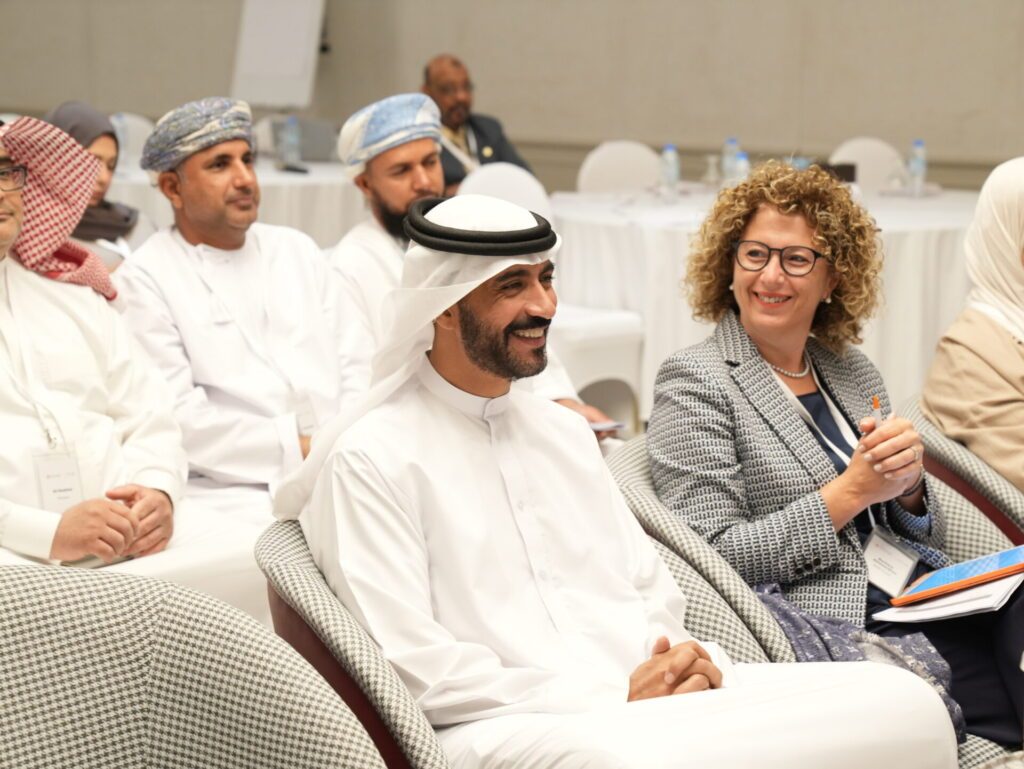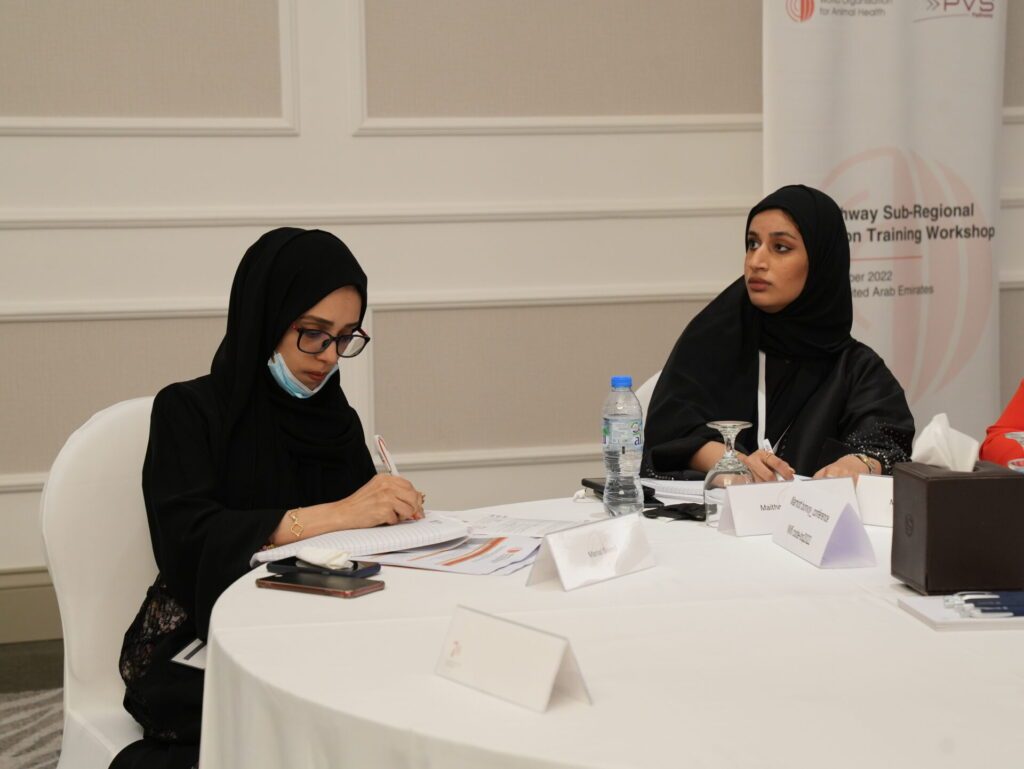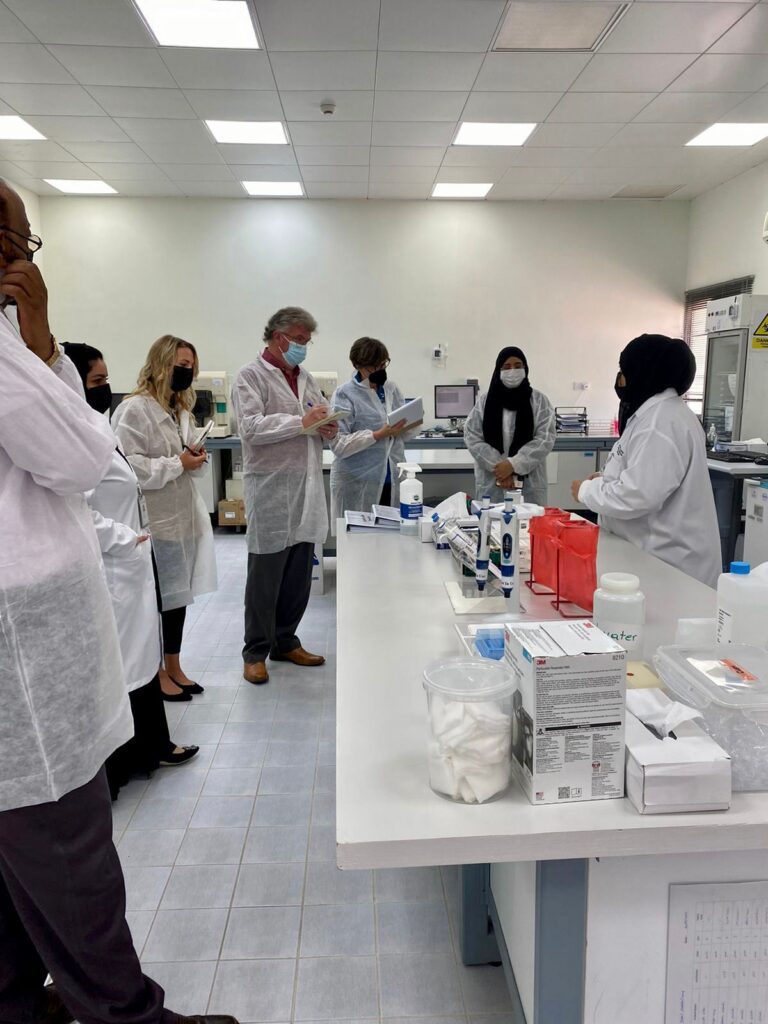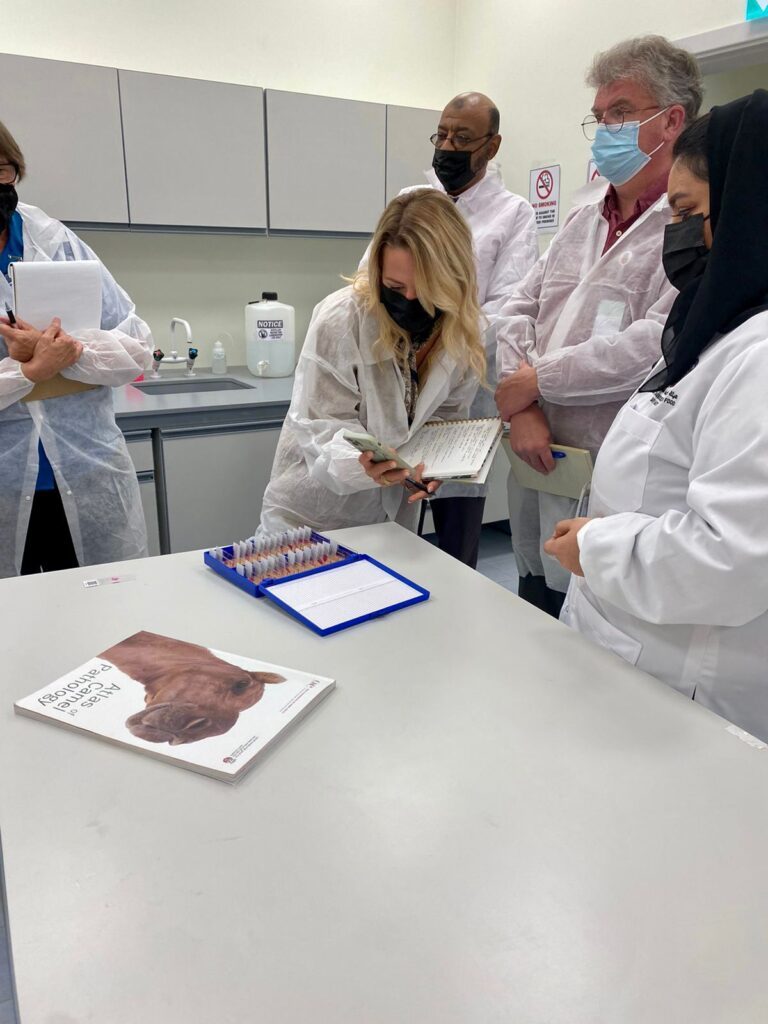Capacity building: scaling up WOAH’s digital support for the veterinary workforce

16 August 2022: Scientists of the ADAFSA Laboratory, WOAH’s Collaborating Centre for Quality Management Systems in the United Arab Emirates (UAE), met for the very first time with independent experts after initial remote conversations. The goal: to assess the capacity of their national veterinary laboratory network. This Sustainable Laboratories mission—an option proposed through WOAH’s Performance of Veterinary Services (PVS) Pathway—was transformed into a hybrid virtual and face-to-face capacity building activity to meet urgent capacity development needs in the wake of the pandemic.
“The hybrid PVS mission helped us look deep into our functions”
Paving the way for physical meetings in 2022, the initial round of capacity building consultations between laboratory members and experts initiated a data collection process as early as April. This wider time-frame, compared with traditional PVS missions, ensured maximum availability of all participants, and was a pivotal factor in the success of the mission.
“[The hybrid format] provided an opportunity to evaluate the efficiency and sustainability of our laboratory system and to get more information, knowledge and feedback from the experts”, says Dr Asma Mohammed, Director of the ADAFSA Veterinary Laboratories. “It was the best way to involve our lab team without affecting our workflow”.
The data collection tool provided by WOAH allowed participants to visualise and evaluate their own data immediately. It offered them the opportunity to “look deep into [their] functions”, making the subsequent assessment and recommendation phases more relevant.
Providing Members with actionable information and capacity building to improve animal health
With the support of WOAH’s PVS experts both online and face-to-face, UAE’s participants made significant advances in capitalising on their unique expertise in camel diseases such as Middle East respiratory syndrome (MERS), peste des petits ruminants (PPR) and brucellosis. Knowing the scientific importance of reliable diagnosis of these diseases and its commercial potential at a global scale, Dr Mohammed’s team now aims to become a certified provider of proficiency testing schemes. “The goal is to improve camel health systems by implementing WOAH international Standards, and to communicate and disseminate those standards beyond our borders”, Dr Mohammed says.
The participants also initiated a partnership with national academic institutions to launch histopathology kits for training purposes. Thanks to samples collected for over twenty years during post-mortem analyses of camels, the participants were able to fill the gap in commercially available histopathology slides for camel diseases, and supply university students with this specific training material. PVS experts spearheaded the idea to create digital kits to be deployed globally, providing a state-of-the-art training tool for universities worldwide and a financial investment for ADAFSA Laboratories. “It’s supporting animal health, it’s supporting the quality of the test, it’s improving the human and technical competency level and it’s an area of investment”, Dr Mohammed says.
The PVS Sustainable Laboratories Mission provides in-depth analysis of the pertinence, efficiency, and sustainability of the national laboratory network, including an appropriate balance of personnel, infrastructure, equipment and operational resources, based on national diagnostic needs.
Capacity building at a regional level through hybrid training
A similar hybrid approach was chosen for the 2022 capacity building training session on antimicrobial resistance (AMR) organised as part of the “Working Together to Fight Antimicrobial Resistance” Tripartite Project (WOAH, Food and Agriculture Organization of the United Nations and Pan American Health Organization), funded by the European Union. The training was delivered by the ANLIS-Malbrán Institute of Argentina, a WHO Collaborating Centre. Participants from several countries in the Americas addressed the theoretical aspects of AMR during nine virtual sessions before putting their new capacities to the test during a three-day intensive practical workshop.
Sharing of knowledge, procedures and best practices was an integral part of the training. The participants were also able to collaborate and share their experiences during the on-site part of the workshop, praising the exchanges and the connectivity it enabled beyond national borders, at a regional level.
Training the veterinary workforce beyond borders
Because the continuous and agile training of the veterinary workforce is an essential part of improving animal health globally, WOAH intends to pursue hybrid PVS missions in the future. Simultaneously, it keeps on providing quality capacity building activities to all its Members: in 2022, its online training portal continued offering free resources, activities and discussions to animal health stakeholders worldwide. Moreover, over 25 new modules are currently under development, covering areas such as emergency management, wildlife trade and surveillance, and leadership in Veterinary Services. Some of them will be part of the organisation’s online training catalogue in 2023.




